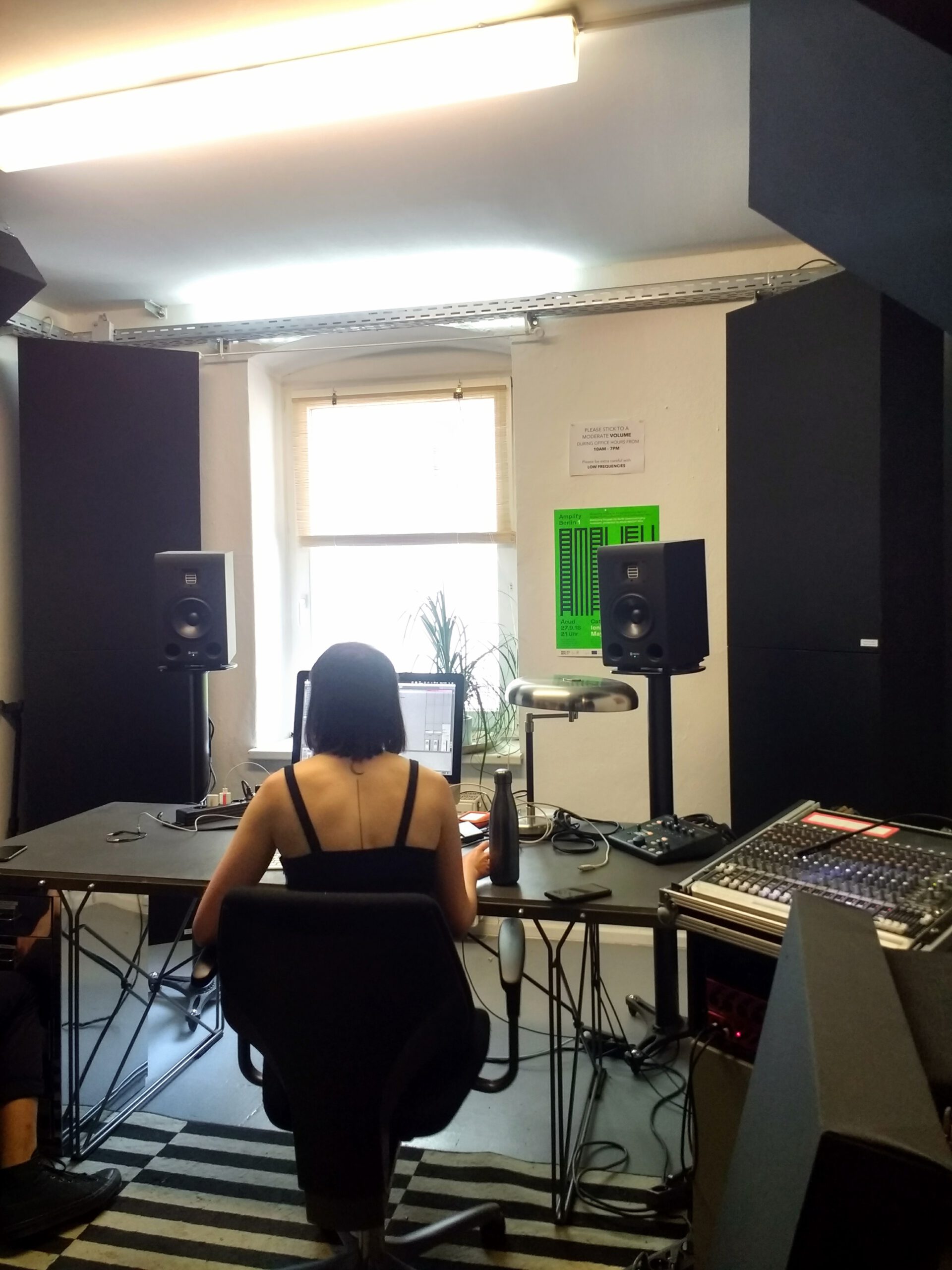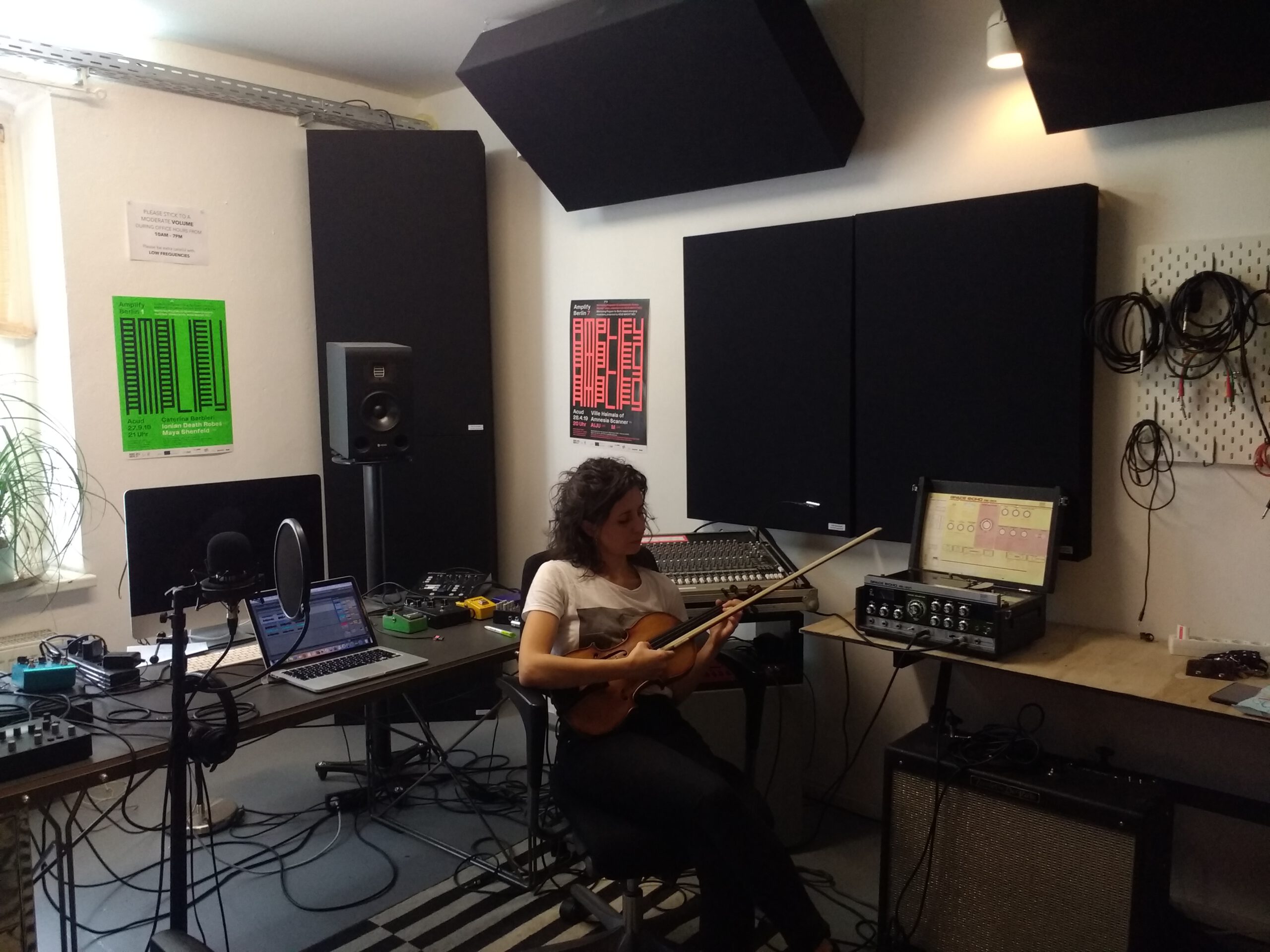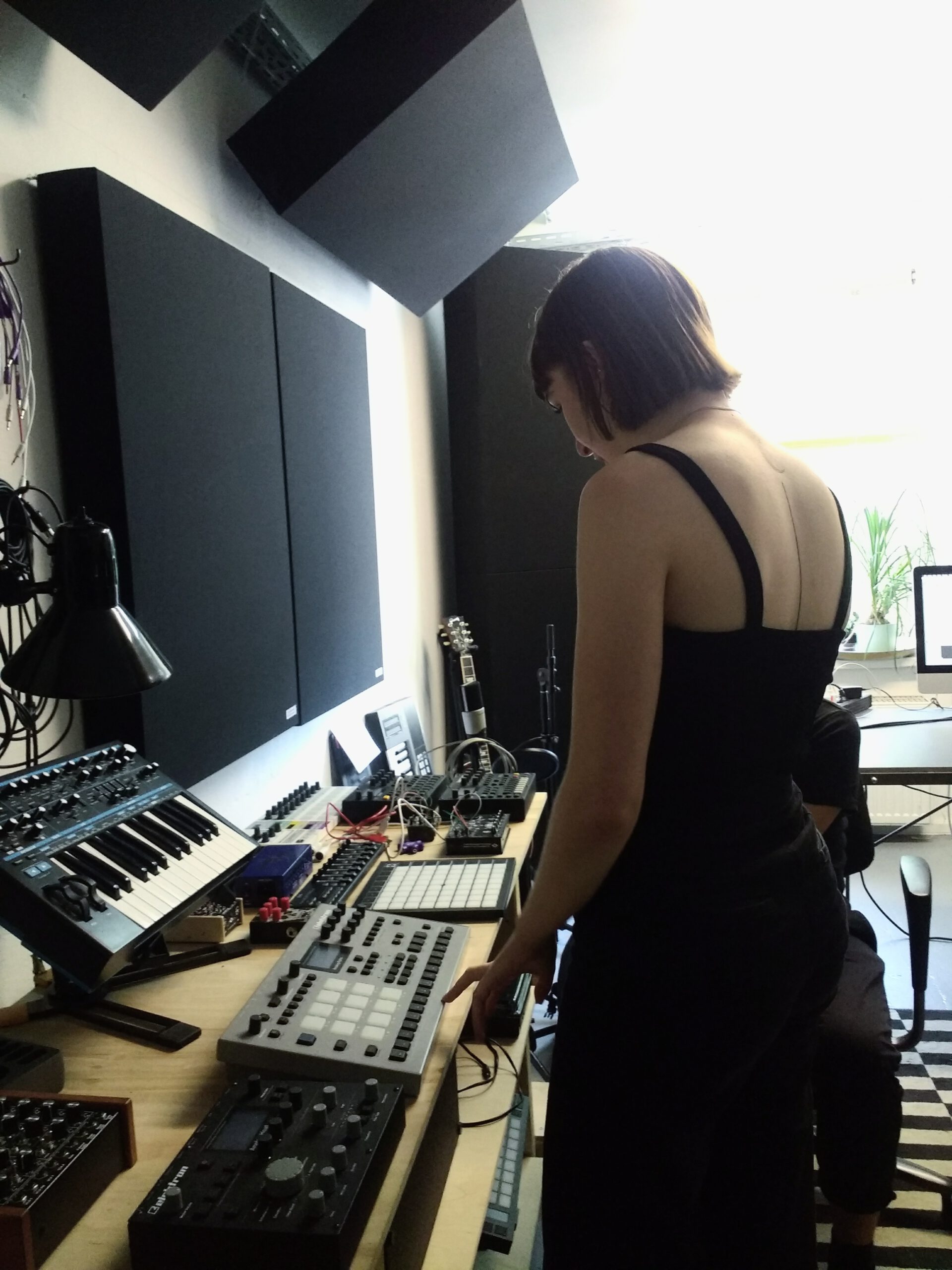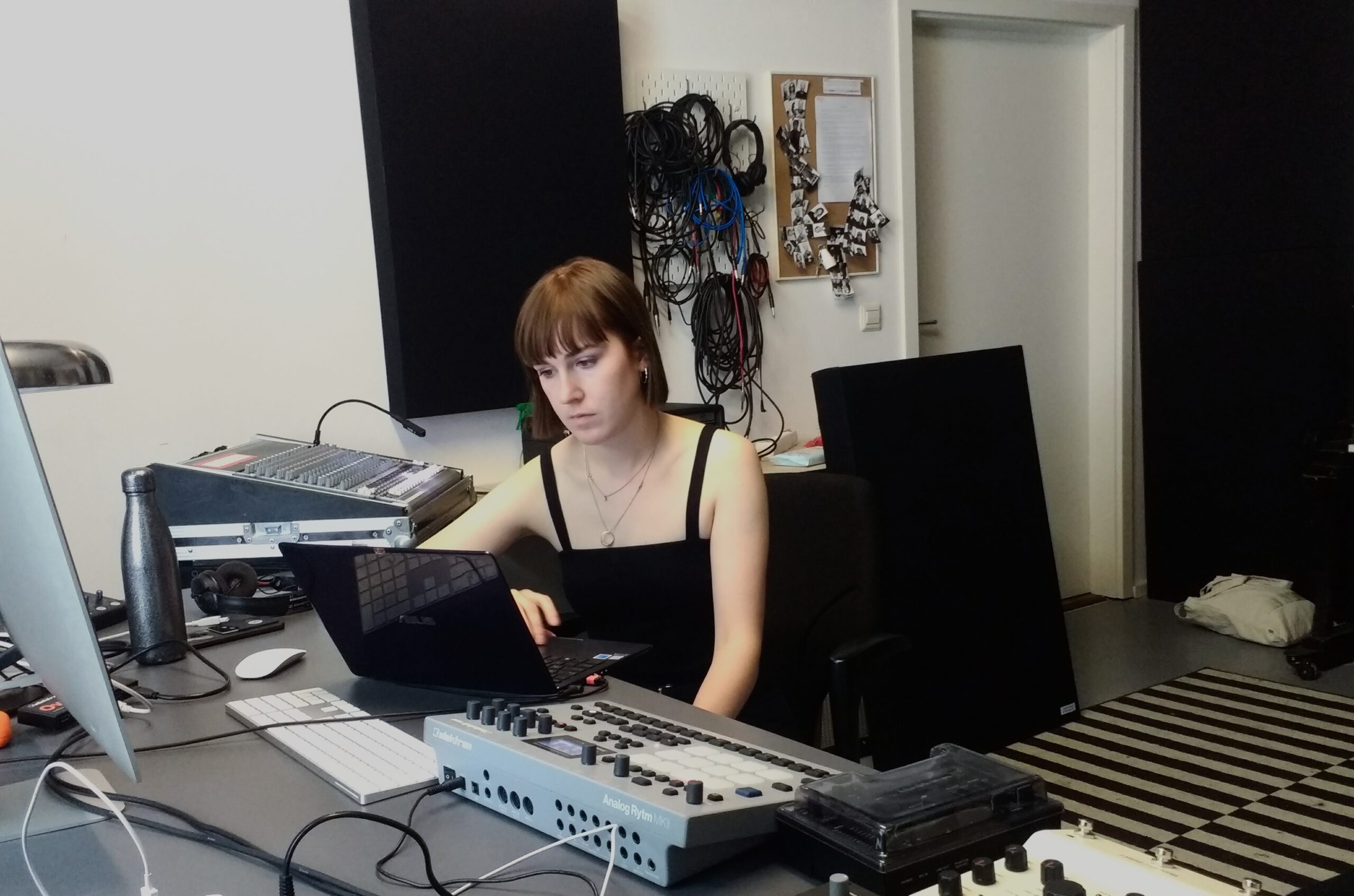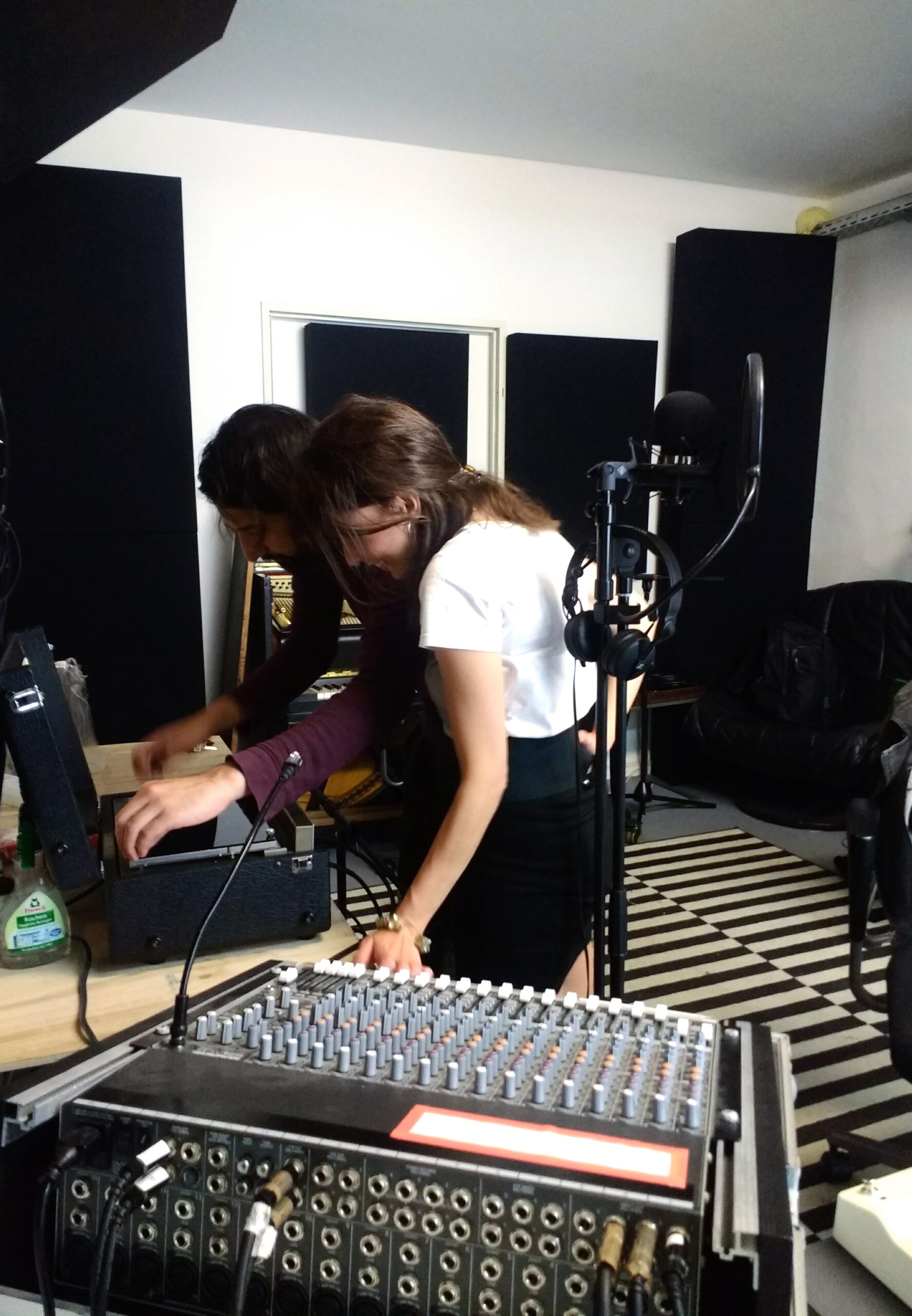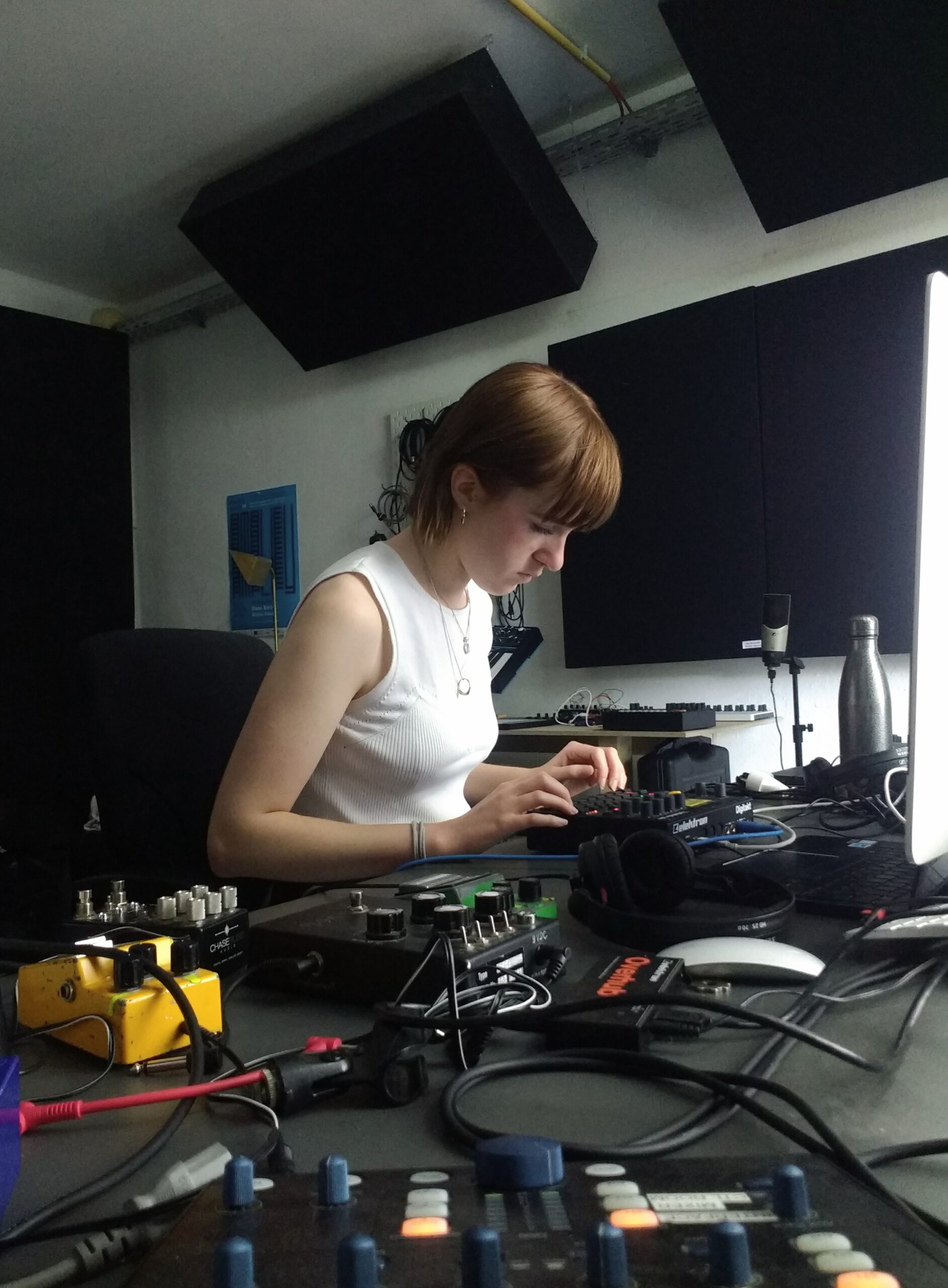Berlin
19
James Young
Interview
Sable & Andrée Burelli
We’ve spent June 2020 with mentees Sable and Andrée Burelli. They have been working long-distance with their mentor James Young, half of the duo Darkstar. The two musicians released two engaged and poetic songs that you can listen below. To close their residency, Isobel Hambleton and Andrée Burelli have been interviewing each other. Enjoy!
S: How did your relationship to music begin?
AB: I feel my relationship to music has always existed, I always felt curiosity and connection towards sound. Singing has been my very first approach at a very young age, then came violin and later more instruments as piano, tabla and synthesizers. The pieces I am composing at Amplify Berlin are somehow linked to my very first approach to music practice, as they are all based on vocals. I am currently recording polyphonic compositions with my voice, accompanied by layers of violin and kicks that are like heartbeats to me. In this creative process with James I got to look inside myself, I got back where it all started, I feel like a phoenix, it’s like flying after dying. This really feels like a new beginning.
S: Is there any key message or value that lies at the centre of the music you make?
AB: Every record I released had a message, they were all concept albums, about illusions, freedom, spirituality, nature, magic, dreams. Most of my music has been instrumental but now that I am using my voice I am including words. I think artists communicate what they truly are, and beside being a musician I’m a poet. The lyrics of my current pieces, which I write in Italian and Spanish, can describe impressions of a moment, they can be abstractions or fictions, but I guess that they are all finally rooted into a very spiritual way of perceiving the beauty of this world, and maybe this is what I am trying to communicate.
S: How has the current crisis changed or influenced the things that you make?
AB: If you refer to Covid-19, well, I honestly think we are living in a constant crisis anyway. It had been weird to me at some point because when shutdown happened I was recording music for a short fiction I had written called “How to survive difficult times”. I speculated on a fictional world in which, due to hostile environmental conditions, outdoor life could no longer be considered, and mankind would miss nature as we know it today. Little did I know in those days that we would soon find ourselves in the midst of a global pandemic. I think it’s pretty clear to me that we are already aware of the problematic our general behaviour or habits can cause. During lockdown I got blocked in Sardinia, Italy, and restrictions were very tough, so my mind escaped into creativity; I wrote a second chapter and recorded a very minimalistic album about meditation. I found a lot of calm into mediation practices, and so I started to perceive a certain kind of utopia within this dystopic time of confinement. In limitation I tried to relate to growth.
AB: What is your background and how does it influence your current work?
S: I come from a very musical home. Although neither of my parents play or sing, they are avid listeners, so growing up I was exposed to such a wide range of artists and genres – post-punk, Motown, art pop, folk, disco, opera, and so on and so on. In particular with my dad, music is a very important point of connection between us. He still sends me songs all the time that he thinks I would like.
I think growing up with someone around who loves it that much has really shaped the way that I listen to music, and how I connect to it. For my dad, and now me, the only thing that matters is that emotional core. Being clever with your work is brilliant – I wish I had more theoretical understanding of music sometimes – but ultimately you have to make sure that you are writing and creating from a place of real honesty. There are a few artists that I grew up with who cut to the core of being a human, like Aretha, or Jeff Buckley, Bon Iver, Radiohead. When I write, or sing, or produce, I constantly try to remind myself to focus on the feelings, and not the theory.
AB: Can you explain a little bit about your creative process?
S: Up until recently I would start most tracks with a sample or some chords, and try and produce a verse instrumental, and then lay some vocals on top and see which direction it started to move. The problem is that I have a tendency to overproduce a lot – sometimes I’m so keen to ‘be a good producer’, whatever that means, that I get a bit lost in the sounds and can’t fit a song into it.
James has really brought me back to a place of writing songs first, and then forming the production around it. It sounds pretty obvious, but I do everything myself normally, so ideas can get lost along the way if I start getting too deep into sounds or effects. Recently I’ve been sitting at the piano and just playing and singing, until something comes out that feels right. At least a verse and chorus, if not the whole track. Then I’ll get some chords down into Ableton, perhaps lay down a vocal track to a click, so that the production doesn’t get in the way of the vocal too much, and start constructing the other elements around it. I’m trying to be more minimal, and focus on writing strong parts rather than cramming a lot in, although it’s so easy for me to get into that habit.
It’s mad though. Some of my favourite songs that I have written felt like they just arrived in one piece the second I started singing, these completely fully formed ideas and melodies. Others take quite a long time to crack – actually I’d been sitting on the tune I finished for Amplify for months, unfinished – but in those scenarios I find sitting and playing it through on the piano and singing it to myself can be quite illuminating. With everything bare, you can see what isn’t working pretty quickly.
AB: Do you relate politics to music and if yes, how?
S: I think politics is related to everything. It entirely dictates every aspect of our lives, and especially at the moment I think the political landscape is so fraught that everything you do is a political choice of some kind. For me, music is about community and, as I said before, emotion. A lot of musicians are hugely influential, because people connect with their words very deeply. I get frustrated these days when artists refuse to express political views. I think it’s irresponsible to not use your platform to try to make the world a better place.
But I also think that, for many artists, simply the act of existing and creating is political. Right now, especially in the UK but pretty much anywhere, it feels like there is a very deep sense of mistrust between different communities. Artists from any and all minority backgrounds (races, genders, sexualities) allow others to see into their world, and to emotionally engage with their lives. Even if the tunes aren’t political in nature, that tune or that artist could make someone see in a new way, or look into a world they had never explored before. Exposure to a huge number of other perspectives is, without a doubt, the best way to unlearn your own prejudices and start thinking outside of your bubble. There is so much work to be done in the political realm, and it feels really depressing so often, but I think some of the artists creating right now – Lizzo, Lil Nas X, Mykki Blanco, Brockhampton, Beyonce, Kendrick, even Billie Eilish – are starting some conversations that the world needed to have a long time ago, and I’m so here for it.
